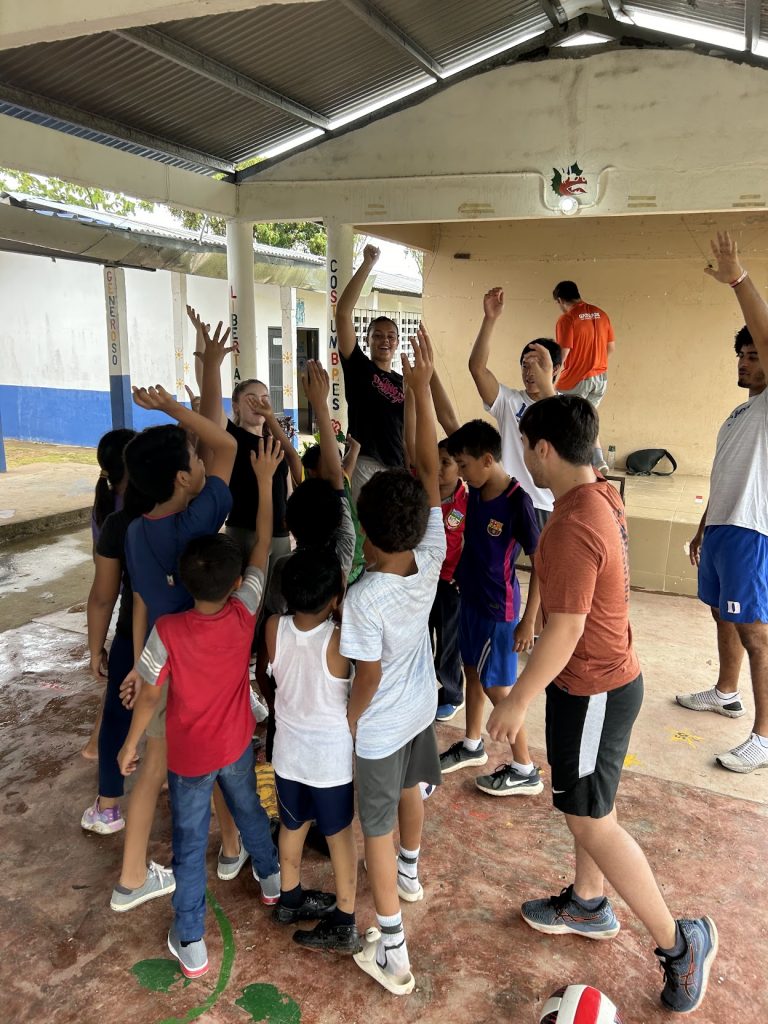
I waved and smiled as I entered the school, trying to hide how I really felt: unprepared and unqualified. Many doubts were running through my head before our first day of the sports camp. How was I supposed to make an impact on these kids in only one week while teaching them volleyball, a sport that I didn’t know, using only minimal Spanish? Even if I could connect with these kids, would learning volleyball even matter to them? I thought back to the night before when, in an attempt to prepare, I had googled “volleyball drills,” hoping to find useful games and fun activities to run through with the group. Instead, I was met with technical drills describing the ideal foot position for setting a low ball. The only suggestion that looked even remotely fun, an “Energy Check Drill,” had nothing to do with hitting or serving but instead consisted of clapping a rhythm while chanting, “Volleyball!”
This chant was the first activity that we did with the kids and despite their hesitant looks of confusion as we began yelling, they quickly joined in, finishing the chant with “¡Uno, dos, tres, vóleibol!” The rest of the first day was a whirlwind of passing, serving, and seemingly endless games of sharks and minnows. I was beyond impressed by the energy and enthusiasm of the kids, who seemed to be capable of perpetual motion, refusing water breaks to demand that we continue playing. Meanwhile, I found myself out of breath, drenched in sweat, and questioning if I could even be considered an athlete while the kids started their third game of freeze tag in a row.
While the kids seemed to have had fun on the first day, I wondered if the camp had any impact on them or if we had formed any meaningful connections. My questions were quickly answered on the second day when, despite pouring rain, we were met with hugs and excitement. Before the camp, we sat and ate lunch, and while I could barely hear the rest of the group over the percussive patter of the downpour, I heard another noise coming from the table behind us. At first, I thought the low rumble that I heard was thunder, but as it grew louder I could hear a rhythm:
“¡Vóleibol, vóleibol, vóleibol!”
I turned around to find the kids banging on the tables, smiling and chanting. Even as they left lunch to change before the camp, we could hear their distant chanting over the pounding rain. At that moment, I realized that, despite my doubts, we could form an important connection during our week-long camp.
Volleyball in Spanish is “vóleibol,” pronounced nearly the same as it is in English. While this can be explained by its Latin etymology, to me, this similarity represents a third language that we used to connect with the kids throughout the week: the language of sport. It was through sports that we were able to communicate with the kids, have fun, and form friendships, even despite our language barrier. While I had initially questioned the impact we could have in a week, watching the kids learn teamwork and seeing the schools build community through volleyball reminded me of how sport fosters connection. This week not only formed new friendships and exposed me to new cultures but also reminded me of why I love sports.
